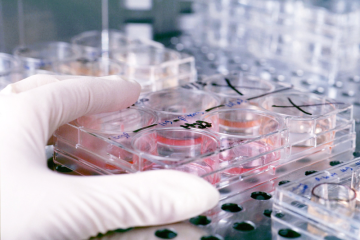PhD Studentship
Replacing Mouse Immunotherapy Models with Human Colorectal Cancer Organoid - T Cell Cultures

At a glance
In progress
Award date
October 2023 - September 2027
Grant amount
£90,000
Principal investigator
Professor Awen Gallimore
Co-investigator(s)
Institute
Cardiff University
R
- Replacement
